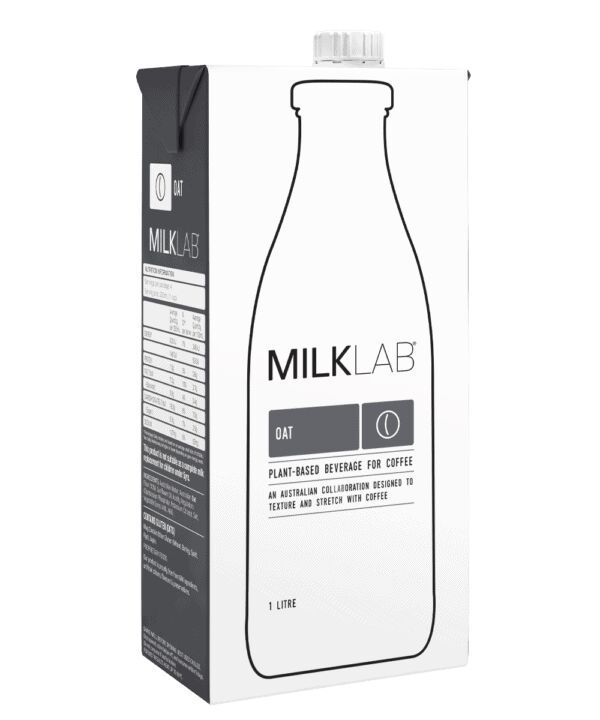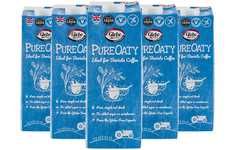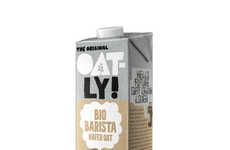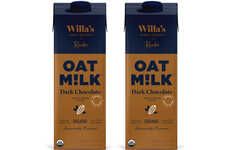
MILKLAB Oat Milk is Now Available in Singapore Through Select Cafés
Grace Mahas — October 7, 2021 — Lifestyle
References: milklabco & us.acrofan
MILKLAB Oat, a popular Australian barista plant-based milk designed specifically for coffee, recently announced it will now be available across Singapore at select participating cafés and food service outlets. The beverage boasts a natural and subtle sweetness that complements the flavors of coffee and is versatile and can be used in both hot and cold beverages.
MILKLAB Oat took over two years to develop the coffee-specific oat milk, working alongside renowned coffee professionals. "Our team has spent countless hours working with baristas, coffee roasters and café owners to ensure our Oat milk offering would complement the comprehensive range of MILKLAB products," said Peter Brown, Regional Director, China, Southeast Asia and Middle East, Freedom Foods Group, the brand owner of MILKLAB.
Image Credit: MILKLAB Oat.
MILKLAB Oat took over two years to develop the coffee-specific oat milk, working alongside renowned coffee professionals. "Our team has spent countless hours working with baristas, coffee roasters and café owners to ensure our Oat milk offering would complement the comprehensive range of MILKLAB products," said Peter Brown, Regional Director, China, Southeast Asia and Middle East, Freedom Foods Group, the brand owner of MILKLAB.
Image Credit: MILKLAB Oat.
Trend Themes
1. Plant-based Milk - The growing demand for plant-based milk that is specifically designed for coffee drinking presents opportunities for developing new, innovative products and expanding distribution.
2. Coffee-specific Milk - The trend towards coffee-specific plant-based milk presents opportunities for collaboration between coffee roasters, baristas, and milk producers to create new products that can better complement the flavors of different coffee blends.
3. Natural and Subtle Sweetness - The popularity of oat milk’s natural and subtle sweetness presents opportunities for marketing and promoting plant-based products that are less processed and healthier alternatives to traditional dairy milk.
Industry Implications
1. Food and Beverage Manufacturing - Companies can innovate in food and beverage manufacturing by investing in research and development of the production of coffee-specific plant-based milk products that can be used for both hot and cold drinks.
2. Coffee Roasting - Coffee roasting companies can partner with milk producers to create coffee-specific plant-based milk products that complement their unique coffee blends, thereby enhancing their coffee experiences and customer satisfaction.
3. Food Service - Food service companies can capitalize on the growing trend towards natural and healthier plant-based milk alternatives by offering a wider range of beverage options that cater to customers’ dietary preferences and tastes.
3.6
Score
Popularity
Activity
Freshness























